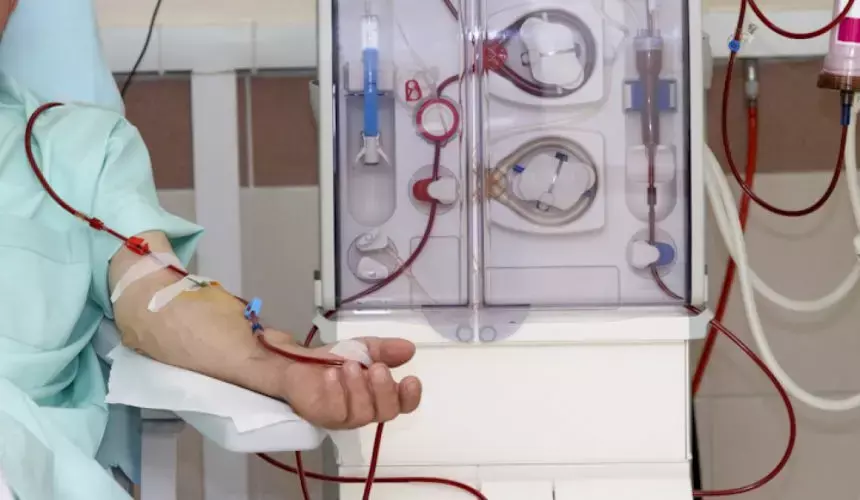- Home
- Medical news & Guidelines
- Anesthesiology
- Cardiology and CTVS
- Critical Care
- Dentistry
- Dermatology
- Diabetes and Endocrinology
- ENT
- Gastroenterology
- Medicine
- Nephrology
- Neurology
- Obstretics-Gynaecology
- Oncology
- Ophthalmology
- Orthopaedics
- Pediatrics-Neonatology
- Psychiatry
- Pulmonology
- Radiology
- Surgery
- Urology
- Laboratory Medicine
- Diet
- Nursing
- Paramedical
- Physiotherapy
- Health news
- Fact Check
- Bone Health Fact Check
- Brain Health Fact Check
- Cancer Related Fact Check
- Child Care Fact Check
- Dental and oral health fact check
- Diabetes and metabolic health fact check
- Diet and Nutrition Fact Check
- Eye and ENT Care Fact Check
- Fitness fact check
- Gut health fact check
- Heart health fact check
- Kidney health fact check
- Medical education fact check
- Men's health fact check
- Respiratory fact check
- Skin and hair care fact check
- Vaccine and Immunization fact check
- Women's health fact check
- AYUSH
- State News
- Andaman and Nicobar Islands
- Andhra Pradesh
- Arunachal Pradesh
- Assam
- Bihar
- Chandigarh
- Chattisgarh
- Dadra and Nagar Haveli
- Daman and Diu
- Delhi
- Goa
- Gujarat
- Haryana
- Himachal Pradesh
- Jammu & Kashmir
- Jharkhand
- Karnataka
- Kerala
- Ladakh
- Lakshadweep
- Madhya Pradesh
- Maharashtra
- Manipur
- Meghalaya
- Mizoram
- Nagaland
- Odisha
- Puducherry
- Punjab
- Rajasthan
- Sikkim
- Tamil Nadu
- Telangana
- Tripura
- Uttar Pradesh
- Uttrakhand
- West Bengal
- Medical Education
- Industry
Abnormal Predialysis Potassium Increase the Risk of Death

Hemodialysis patients rely mainly on potassium removal during each dialysis session as potassium homeostasis is mainly regulated by the kidneys. A recent study suggests that predialysis hyper- and hypokalemia might increase the risk of death. The study findings were published in the journal Kidney Medicine on October 22, 2021.
Predialysis serum potassium is a known modifiable risk factor for death in hemodialysis patients, especially for hypokalemia, this risk may be underestimated. Therefore, Dr Esther N.M. de Rooij MD and her team investigated the relation between predialysis serum potassium and death in incident hemodialysis patients and whether there is an optimum level.
In a prospective multi-centre cohort study, the researchers included 1117 incident hemodialysis patients (>18y) from the Netherlands Cooperative Study on the Adequacy of Dialysis (NECOSAD). They evaluated the patients from their first hemodialysis treatment until death, transplantation, switch to peritoneal dialysis or a maximum of 10 years. They examined predialysis serum potassium for every 6 months and divided it into six categories:
♦ ≤4.0,
♦ >4.0-≤4.5,
♦ >4.5-≤5.0,
♦ >5.0-≤5.5 (reference),
♦ >5.5-≤6.0 and >6.0 mmol/L.
The major outcome assessed was all-cause mortality by 6-month.
Key Findings of the study were:
- Among 1117 hemodialysis patients, 58% were men, 26% smoked, 24% had diabetes, and 32% had cardiovascular disease.
- At baseline, the researchers noted that the mean serum potassium level was 5.0 mmol/L. In addition, 7% had low subjective global assessment scores. The median residual kidney function was 3.5 mL/min/1.1.73m2.
- Upon ten year follow-up, they observed 555 (50%) deaths.
- For the six potassium categories, they used multivariable adjusted hazard ratios to measure the outcome. Death according to the six potassium categories were: 1.42 (1.01-1.99), 1.09 (0.82-1.45), 1.21 (0.94-1.56), 1 (reference), 0.95 (0.71-1.28) and 1.32 (0.97-1.81).
The authors concluded, "We found a U-shaped relation between serum potassium and death in an incident hemodialysis patients. Low predialysis serum potassium was associated with a 1.4-fold stronger risk of death compared to the optimal level of approximately 5.1 mmol/L".
They further added, "These results may imply cautious use of potassium-lowering therapy and potassium-restricted diet in hemodialysis patients."
For further information:
Medical Dialogues Bureau consists of a team of passionate medical/scientific writers, led by doctors and healthcare researchers. Our team efforts to bring you updated and timely news about the important happenings of the medical and healthcare sector. Our editorial team can be reached at editorial@medicaldialogues.in.
Dr Kamal Kant Kohli-MBBS, DTCD- a chest specialist with more than 30 years of practice and a flair for writing clinical articles, Dr Kamal Kant Kohli joined Medical Dialogues as a Chief Editor of Medical News. Besides writing articles, as an editor, he proofreads and verifies all the medical content published on Medical Dialogues including those coming from journals, studies,medical conferences,guidelines etc. Email: drkohli@medicaldialogues.in. Contact no. 011-43720751


